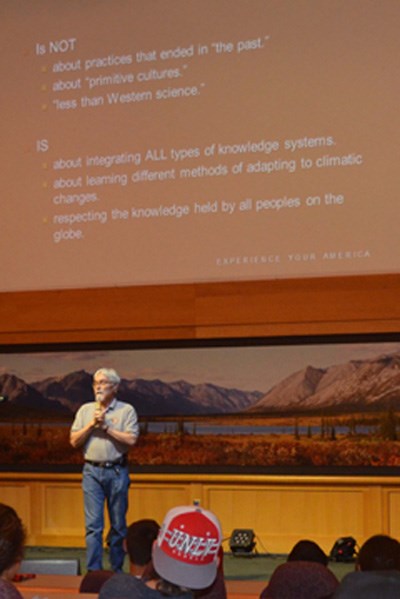
USFWS
Learning and experiencing TEK is not for a novice. Reading literature about TEK and speaking with professionals can help one determine if a project can benefit from TEK. Similarly, experienced professionals can help identify appropriate project personnel.
In addition, even though one's intent in learning TEK may be altruistic, the ways the information is used can have unintended consequences. A cultural anthropologist will have experience with ethnology and/or TEK and will be able to provide insight.
A number of books and publications examine TEK and its strengths in relation to Western science and evolutionary philosophy. Some of these books address the scientific basis of TEK, focusing on different concepts of communities and connections among living entities, the importance of understanding the meaning of relatedness in both spiritual and biological creation, and a careful comparison with evolutionary ecology. They may examine the themes and principles informing this knowledge, and offer a look at the complexities of conducting research from an indigenous perspective.
Several pages and their sub-pages on this site provide additional information. Click on the following links to navigate to these pages:
California Landscape Conservation Cooperative
Recorded: August 21, 2017
National Adaptation Forum
Recorded: May 9-11, 2017
Chuck Striplen, PhD – Environmental Scientist, San Francisco Estuary Institute, Aquatic Science Center
An Overview of TEK and Two Case Studies
U.S. Fish and Wildlife Service
The online class is about 2 1/2 hours long and has three presentations, including those of Dr. Daniel Wildcat, Dr. Sarah Rinkevich and Jeanne Spaur.
By: Charles E. Trimble, Barbara W. Sommer, and Mary Kay Quinlan
Left Coast Press
2008
https://www.routledge.com/The-American-Indian-Oral-History-Manual-Making-Many-Voices-Heard/Trimble-Quinlan-Sommer/p/book/9781598741483
Last updated: July 10, 2023
